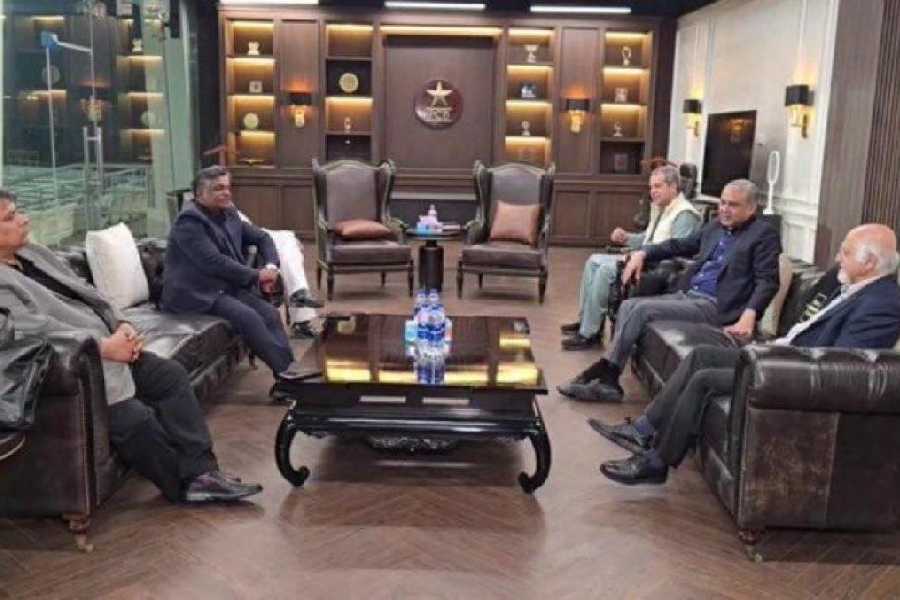Freedom song
Sir — Mukul Kesavan’s article, “Fidgeting in the Fort” (August 15), is a colourful memoir of Independence Day celebrations during his childhood. At that time, Independence Day was celebrated with enthusiasm and patriotism. Today, August 15 celebrations are ritualistic and indifferent. It is not surprising to note that standing up when the national anthem was being played came naturally to a young Kesavan. It is the nation’s leaders who inspire feelings of patriotism among citizens of a nation. Leaders such as Jawaharlal Nehru and Lal Bahadur Shastri instilled a love for India in the hearts of their followers.
Kesavan’s childhood memories of Independence Day celebrations in Delhi bear many similarities to the way the occasion was celebrated in other parts of the country in those days. Even in a small hill station like Shillong, August 15 was observed with solemnity in schools. Cultural events were organized, and the spirit of patriotism was apparent. Sporting events were hosted by clubs in almost all localities. It was a very special day.
I was, however, surprised to read that Kesavan could not decipher the meaning of the national anthem which is written in Bengali. He has said that apart from Bengalis, “no other species of Indian had a clue” what the words of the anthem meant. This is strange, because the language in the national anthem is very easy to understand. Any Indian who cares to know the meaning would comprehend the words.
Yours faithfully,
Srikanta Bhattacharjee, Calcutta
Sir — In his article, “Fidgeting in the Fort”, Mukul Kesavan says that “nationalist rituals like anthem singing were a middle-class preoccupation”. It is interesting to see that whenever there is an incident where the national flag, or the national anthem, is shown ‘disrespect’, members of the middle class in India — most of whom lead comfortable lives owing to their jobs at multinational companies — are the first to protest vociferously. But they never seem to protest against the real problems that plague the majority of the nation’s population, such as hunger, poverty, illiteracy and social injustice. The ‘educated’ middle class seems to value a symbol of the nation more than the people of the country. One wonders when it will learn to make a distinction between the two. A well-fed, literate society that enjoys basic human rights is the only sign of a prosperous nation.
Yours faithfully,
Kajal Chatterjee, Sodepur
Sir — Independence Day is no longer memorable. There are just march pasts in schools; otherwise, youngsters roam around in shopping malls holding miniature flags. They eat, drink and play as usual, and then go to sleep after watching television.
However, observing the children who work at the roadside eateries at Ultadanga — where I reside — is an eye-opening experience. These children are busy toiling to earn enough to eat two meals a day. They serve food to customers but never look upon that food greedily. I have often wondered what could have led them to a life of such penury.
The answers to questions such as these are never simple. Most of these children have migrated to the city; their homes are in villages in neighbouring states. Their parents depend on them for money. Many of them come to the city to work when they are no more than seven or eight years old. One cannot even blame their employers; at least the children are making a living. But the tragedy is that they have to work when they ought to be studying. Is this the product of the independence that the country is so proud of? The sound of a patriotic song stirs feelings of elation in our hearts, but the sights that tell the real story of the condition of our nation have no effect on Indians.
Yours faithfully,
Nikita Kabra, Calcutta
Sir — It is difficult to explain what the word, ‘freedom’, means to me. On Independence Day, one can find a number of people on television giving lectures about the nation. During these speeches, they often give vent to their patriotic sentiments. But if one isn’t concerned about the well-being of the people of the nation, then one cannot claim to love one’s country. One has to be empathetic to the sufferings of one’s countrymen and stand up for their rights. India is a diverse nation; this plurality should be used to the people’s advantage. Religious conflict has to stop, and the people need to fight social evils together.
Yours faithfully,
Sneha Majumder, Calcutta










